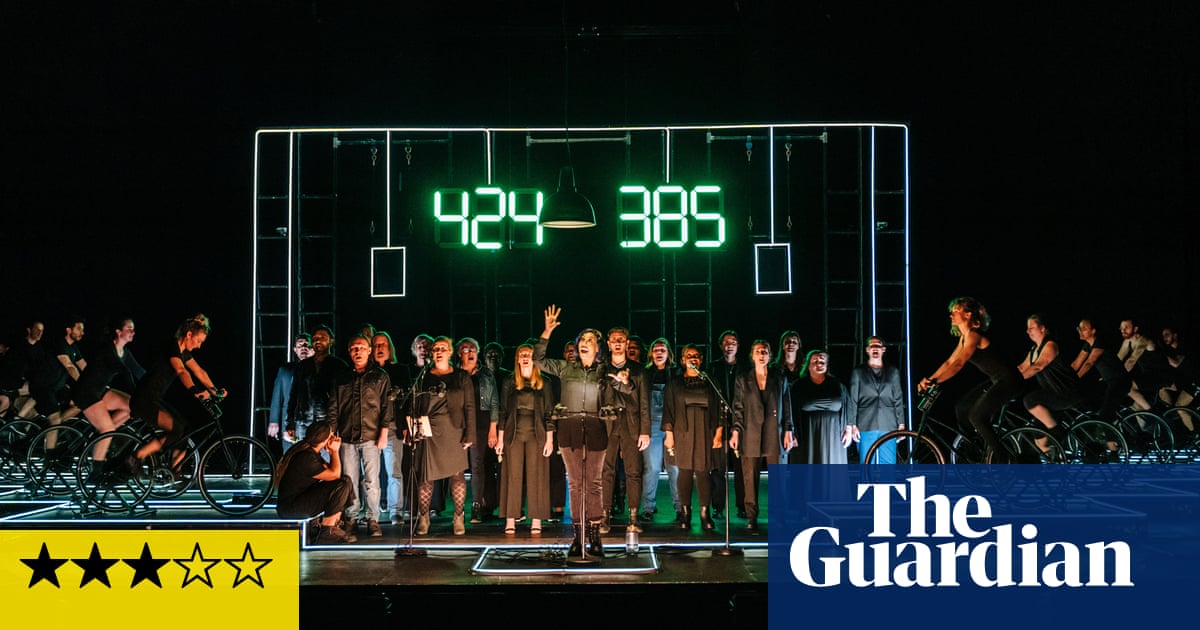
As a concept, Katie Mitchell’s experiment is ingenious: to tour a production about the climate emergency that adheres to eco-friendly principles by generating its own power and sourcing local teams of creatives. This could – and should – become a blueprint for environmentally sustainable theatre.
Pelotons flank the stage and create the required electricity through pedal power. The 10 cyclists, along with luminous digits on a back-screen counting the wattage generated, make clear that the mechanics of this Headlong co-production are as much a part of the show as Miranda Rose Hall’s script.
The latter does not always sustain its dynamism, though it too is full of innovation. Lydia West emerges on stage with a sign language interpreter, Rachel Jones. West is Naomi, the play’s dramaturg, whose central actor has had an emergency – her mother is dying – which means Naomi is stepping into the breach as narrator.
So begins a play apparently created on the hoof about the value of life, the inevitability of death and the science of extinction. West is always engaging, quietly in command as she takes us from the big bang to our present state of human-made climate emergency, which, we hear, has left our planet on the brink of its sixth extinction.
But the meta-fiction feels like a weak premise for Naomi’s plaintive sermon. The script is, essentially, a cri de coeur, staged with footage of endangered flora and animal life. This is affecting in itself but the lessons are too brief and basic. Naomi tells us the play is about the oceans, materiality, greed and BP, among other things, but with such a wide range in the space of 70 minutes we get familiar warnings and soundbites.
White supremacy is touched upon, but it sounds too much like an aside, the argument over barely before it has begun. Performed in a week when we are reminded of the poisonous air pollution around BP’s biggest oilfield in Iraq, and the death of 21-year-old climate activist Ali Hussein Jaloud, the reference to people of colour as “commodities” is all too appropriate but we are in sore need of specifics.
The story’s overarching vision seems indistinct, too. We are told that despite the various waves of extinction, life finds a way of re-emerging. But this almost undercuts the message: how do we stop this particular extinction?
Like April De Angelis’s Extinct, the play shows how hard it is to distil the debates around climate in a straight-up address. Perhaps what is needed is less argument, more story.
At the Barbican, London, until 29 April. Then touring.












